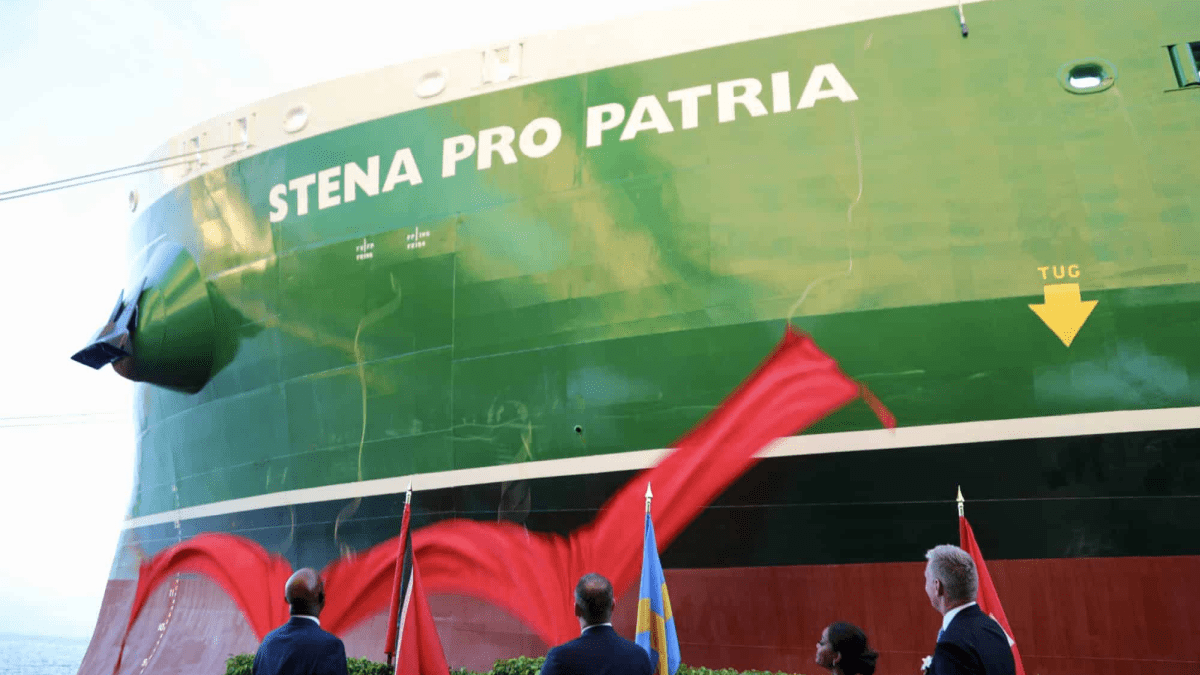One of the vessels nominated for the Tanker Shipping & Trade Tanker of the Year Award was Stena Pro Patria, which was officially named in Trinidad & Tobago recently
The methanol-powered MR tanker Stena Pro Patria was one of the five vessels nominated for Tanker of the Year 2022, awarded at the Tanker Shipping & Trade Awards in Athens.
The first naming ceremony for a methanol-fuelled newbuild in Trinidad and Tobago was attended by Trinidad and Tobago’s Prime Minister, Dr the Honourable Keith Rowley, as well as the Minister of Energy and Energy Industries the Honourable Stuart Young.
Proman is the largest investor and employer in the Point Lisas Industrial Estate, which is home to Trinidad and Tobago’s downstream petrochemicals sector. Proman’s facilities include the world-scale M5000 methanol plant, which produces industry-leading low-carbon methanol by recycling CO2 produced from nearby ammonia plants. Since 2006, almost 24M tonnes of CO2 have been captured from both Proman’s own and neighbouring ammonia plants and re-used.
During the vessel’s time in Trinidad and Tobago, Stena’s leadership had an opportunity to visit Proman’s 14 petrochemical production facilities in the Point Lisas Industrial Estate, as part of a plant tour led by Proman’s chief executive, David Cassidy.
Stena Pro Patria was delivered in June 2022 and has demonstrated an unprecedently low EEDI (Energy Efficiency Design Index) value while running on methanol. The IMOIIMeMax vessel series benefits from industry-leading design improvements and technologies to maximise energy efficiency, resulting in an EEDI 11% below the 2025 Phase 3 requirements – setting a new benchmark for methanol-fuelled tankers and further proving the operational viability of methanol as a marine fuel.
“We are aiming to make Trinidad and Tobago a major refuelling hub for oceangoing vessels”
Stena Pro Patria will use approximately 12,500 tonnes of methanol as fuel per year, which will significantly reduce the volume of greenhouse gas emissions resulting from the vessel’s commercial operations compared to conventional marine fuels.
During his feature address, Dr The Honourable Keith Rowley outlined the potential for bunkering in Trinidad and Tobago as a significant part of the country’s economic development: “We are one of the largest producers and exporters of methanol in the world, and we happen geographically to be on a place at the tip of South America, East of the Panama Canal where all these vessels are being encouraged to change their fuel consumption from the dirty fuel to clean fuel – and that fuel is available in Trinidad and Tobago.”
He added: “We are aiming to make Trinidad and Tobago a major refuelling hub for oceangoing vessels that can be refuelled by clean fuel.”






